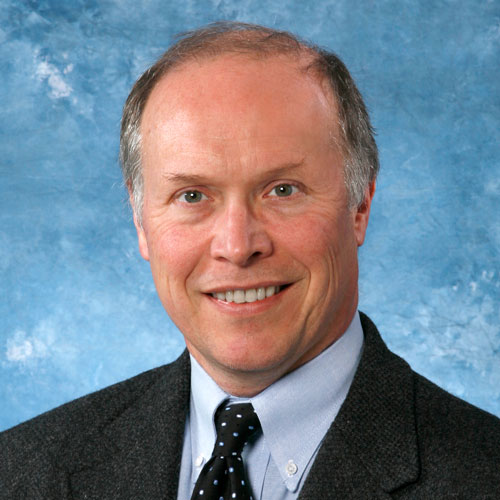
Robert Wham is a Ph.D. Chemical Engineer whose research focus is radioisotope production and radiochemical separations including recycle of used nuclear fuel. He currently serves as Program Manager for the Pu-238 Supply Program at Oak Ridge National Laboratory. Prior to that, he managed several radiochemical processing programs at the Radiochemical Engineering Development Center (REDC). His experience in hot cells and radioisotope production comes from working on the production of heavy elements in the Transuranium Element Program, as well as the recovery of plutonium, americium and curium from targets irradiated at the Savannah River Site.
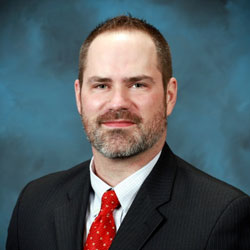
Richard Howard is a staff engineer and manager of the Irradiation Experiment Thermal Hydraulics Analysis Department at the Idaho National Laboratory (INL). He joined the INL in 2020, and was with ORNL for 9 years before that designing and managing irradiation experiments to be performed at the High Flux Isotope Reactor. His works to support the life extension of nuclear reactors, create isotopes for industrial and medical uses, and develop Nuclear Thermal Propulsion technology. To date Dr. Howard has authored or co-authored over 50 refereed journal articles, technical reports and conference papers. He received a bachelor’s degree in Mechanical Engineering from Auburn University, a master’s degree in Nuclear Engineering at North Carolina State, and a Ph.D. in Mechanical Engineering at the University of Tennessee.
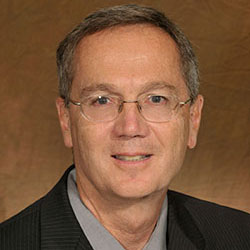
Lawrence Heilbronn is the John D. Tickle Associate Professor and Associate Department Head in the Nuclear Engineering Department at the University of Tennessee, Knoxville. His expertise is in the field of measuring cross sections and yields of interest in the field of radiation protection and medical physics. His current areas of research include measuring secondary particle production from heavy ion interactions relevant to space radiation protection, radioisotope production for medical applications, and nuclear thermal propulsion systems. Dr. Heilbronn has published over 130 articles in peer-reviewed journals. Dr. Heilbronn received a B.S. in physics from the University of Montana, a M.S. in Physics from the University of Illinois, and a Ph.D. in physics from Michigan State University. He worked at Lawrence Berkeley National Laboratory from 1991 to 2008, and joined the faculty at the University of Tennessee in August of 2008.
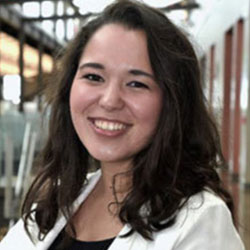
Kelsa Benensky is a senior nuclear engineer in the Advanced Projects Group of Analytical Mechanics Associates (AMA). Kelsa has a background in the design, testing, and experimental investigation of new and novel design concepts for nuclear thermal propulsion (NTP) through NTP development programs at NASA Marshall Space Flight Center, Oak Ridge National Laboratory, and the Center for Space Nuclear Research. Activities have included re-design and operation verification of MSFC’s compact fuel element environmental test (CFEET) and co-authoring ORNL/LTR-2017/119, “A Preliminary Nuclear Thermal Propulsion Fuel Qualification Plan”, to guide the production, irradiation testing, and verification of NTP fuel elements for the Department of Energy. She has most recently served as the reactor-subsystem lead for an industry nuclear thermal propulsion flight demonstration study commissioned by NASA and led by AMA. Kelsa has received degrees in Mechanical Engineering (BS), Nuclear Engineering (BS) from the Pennsylvania State University, as well as Materials Science and Engineering (MS) and Nuclear Engineering (Ph.D.) from University of Tennessee.
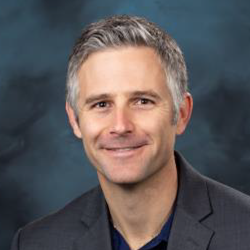
Michael B. R. Smith is a staff member in the Advanced Nuclear System Safety & Licensing Group at Oak Ridge National Laboratory. His work is largely focused in analytical support of nuclear phenomena related to the national space program. Specifically, he provides analytical and modeling expertise in radioisotope power system (RPS) radiation characteristics and has supported multiple NASA RPS projects reviewing the radiation implications of power system configurations, fuel amounts, lifetime projections, etc. He also serves on multiple projects as a reactor shielding analyst for space-based and terrestrial fission reactors along with estimating radiation effects from naturally occurring radiation sources in spaceflight operations from galactic cosmic rays, solar particle events, and trapped radiation belts around the Earth and Jupiter. He has earned BS and MS degrees in Nuclear Engineering from the University of Tennessee.
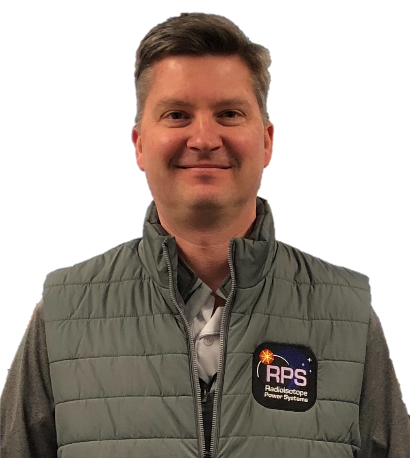
Scott Wilson is the Dynamic Power Conversion Technical Lead in the Thermal Energy Conversion Branch in the Power Division at the NASA Glenn Research Center. Scott also serves as the convertor technology development lead engineer for the Dynamic Radioisotope Power Systems (DRPS) Project and is the power conversion lead for the Fission Surface Power Project. Since 2003, he has worked on or led Stirling modeling, testing, and technology development contracts with the goal of using dynamic power conversion to efficiently convert radioisotope or fission reactor heat into electrical power for spacecraft. Specifically, Scott’s career has focused on analysis of Stirling-cycle machines, life and reliability testing of 100-watt class Stirling convertors, maturation of a low-power electrically heated Stirling generator concept for Small RPS applications and developing Stirling systems with contractors. He earned Bachelor and Master of Science degrees in Mechanical Engineering from Cleveland State University with a focus on computational fluid dynamics analysis of thermal systems.
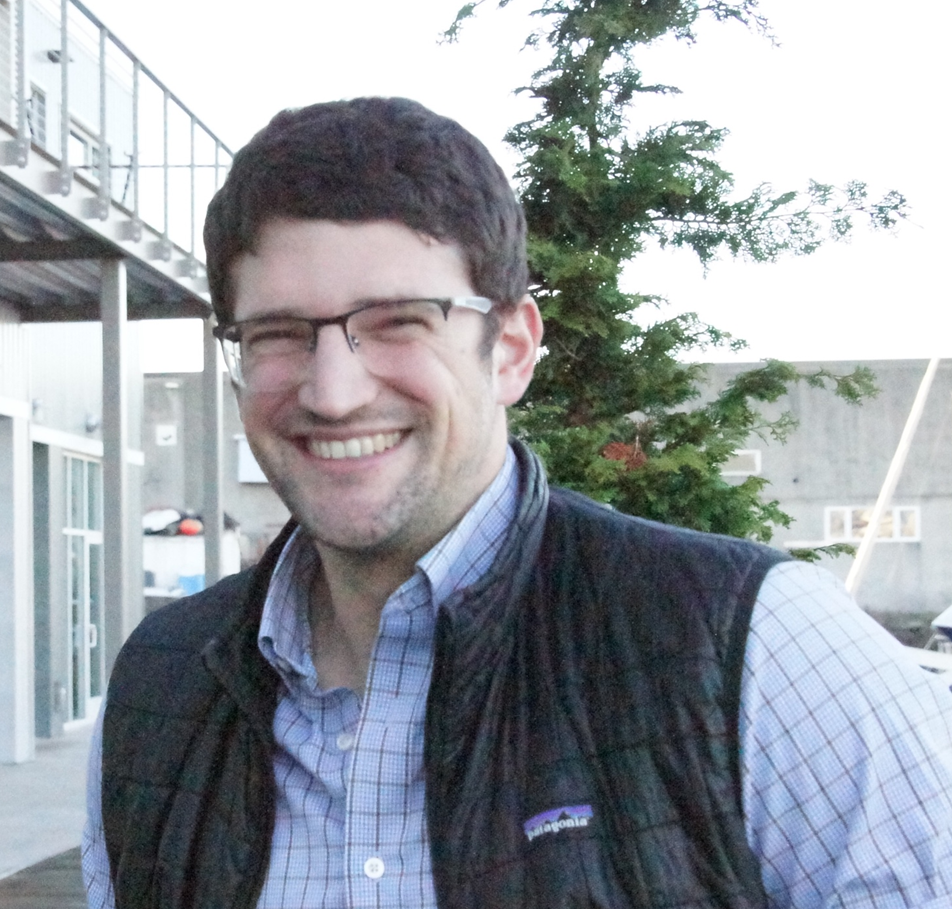
Dr. Paolo Venneri is the CEO and founder of USNC-Tech, where he is responsible for setting company direction, managing multiple projects, and building new business and growth opportunities. He has overseen multiple successful Phase I and Phase II NASA SBIRs and leads projects related to developing fuel and reactor designs for nuclear thermal propulsion, nuclear electric propulsion, and surface fission power. His technical background includes researching the development of thermal spectrum Low-Enriched Uranium Nuclear Thermal Propulsion (LEU-NTP) systems and HALEU surface fission power systems for space and terrestrial applications. He was the first to publish on LEU-NTP systems’ neutronic design and has presented to the National Academies on space nuclear technology on multiple occasions.
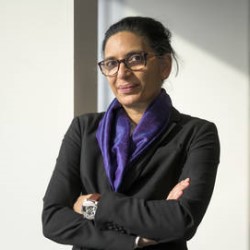
Bhavya Lal is acting chief of staff for NASA. As the senior White House appointee at NASA, Lal served as a member of the Biden Presidential Transition Agency Review Team for the agency and oversaw the agency’s transition under the administration of President Joe Biden. Lal brings extensive experience in engineering and space technology, serving as a member of the research staff at the Institute for Defense Analyses (IDA) Science and Technology Policy Institute (STPI) from 2005 to 2020. There, she led analysis of space technology, strategy, and policy for the White House Office of Science and Technology Policy (OSTP) and National Space Council, as well as federal space-oriented organizations, including NASA, the Department of Defense, and the intelligence community. Lal earned Bachelor of Science and Master of Science degrees in nuclear engineering, as well as a Master of Science degree in technology and policy, from the Massachusetts Institute of Technology, and holds a doctorate in public policy and public administration from George Washington University. She is a member of both the nuclear engineering and public policy honor societies.
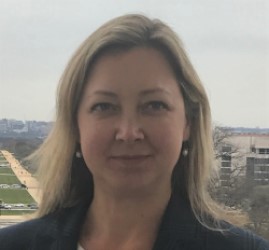
Susannah V. Howieson is the Director of the Office of Strategic Planning and Interagency Coordination under the Principal Deputy Director of the Office of Science. She spent 2019 serving in the office of Congressman Bill Foster (IL-11) as a Congressional Nuclear Security Working Group fellow. From 2010 to 2019, Ms. Howieson conducted science and technology policy analysis for the IDA Science and Technology Policy Institute (STPI), a federally funded research and development center that supports the White House Office of Science and Technology Policy (OSTP) and other Federal agencies. At STPI, Ms. Howieson focused on assessments of research organizations and national security. She also has significant experience in strategic planning and policy development, primarily through her work for the National Security and International Affairs Division of OSTP. Ms. Howieson co-led the research team for the Commission to Review the Effectiveness of the National Energy Laboratories (CRENEL) for DOE. Prior to joining STPI, she worked as an attorney at Sidley Austin, LLP in New York, NY, and for the Office of Climate Change Policy and Technology at DOE. Ms. Howieson has a BA from Rice University, a JD from Boston University, and an MEM in Environmental Economics and Policy from Duke University.
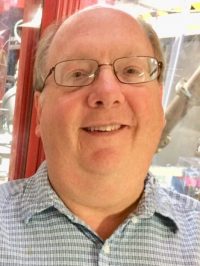
Before entering the private sector in the autumn of 2000, Dr. Jackson was an accelerator physicist at the Fermi National Accelerator Laboratory (“Fermilab”) for 14 years. He received his doctorate in Physics from Cornell University in 1987. Dr. Jackson has published an extensive body of work in the areas of beam physics, accelerator technology, deep-space propulsion, nuclear physics, and medical physics. He was co-recipient of the 1999 IEEE Accelerator Technology Award (along with now-Congressman Dr. G. William Foster) for his design and construction leadership of a 2-mile circumference particle accelerator, was inducted as a fellow of the American Physical Society and elevated to senior member of the IEEE. He has an international reputation in the areas of instrumentation, vacuum technology, robotics, particle beam control, facility construction, and space propulsion, earning him many invitations to present invited talks and teach. His work has been profiled in Scientific American and in the book “Physics of the Impossible” by popular physicist Michio Kaku. He served on U.S. Department of Energy (“DOE”) high energy physics institutional reviews, having reviewed the programs of DOE cabinet secretaries Stephen Chu and Ernest Moniz. He is also a referee for scientific peer reviewed journals, SBIR grant proposals, and accelerator research grant proposals. In 2000 Dr. Jackson received a Federal Energy and Water Management Award, and in 2002 he received a Federal Energy Saving Showcase Award. In 2002 he co-founded the company Hbar Technologies, LLC which performed research projects funded by NASA, the DOE, and DARPA.
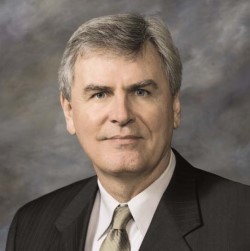
I am currently providing consulting services out of Talos Power LLC in the areas of space nuclear technologies. I am also a senior scientist at Howe Industries LLC in Tempe, AZ. Howe Industries is pursuing development of advanced radioisotope power sources, innovative nuclear reactor concepts for space exploration, advanced in-space propulsion technologies, and a concept to remove large-body space debris.
In August, 2015, I stepped down as Director of the Center for Space Nuclear Research (CSNR) at the Idaho National Laboratory in Idaho Falls, ID. For 10 years I led the CSNR in facilitating research and education of nuclear technologies for space exploration. At the CSNR, I initiated the development of a radioisotope-powered Mars Hopper, a revolutionary, small, radioisotope power source for micro-satellites, a new nuclear rocket design that uses low enriched uranium, and the fabrication of tungsten based fuels for nuclear reactors for power and propulsion in space. I also initiated and oversaw the CSNR Summer Fellows program which has educated over 150 participants from 27 states over a 10 year period in the issues of nuclear technologies in space.
Prior to this position, I was the Program Element Manager of the Reactivity and Compression element in the Nuclear Weapons Stockpile Stewardship Program at the LANL. As such, I managed research funding in basic nuclear science to support the nuclear weapons effort in the Lab. I was also a senior advisor to the Division Leader of the Los Alamos Neutron Science Center (LANSCE). LANSCE has been a major research facility at LANL that comprises a high-intensity, 800 MeV proton beam to perform research in neutron scattering, proton radiography, fast-neutron physics, and radioisotope production.
In addition to my regular activities, I am a published author of fiction having published the novella, Wrench and Claw, in Analog magazine. I also published the novel, Honor Bound Honor Born, which detailed the possible development of the first commercial base on the Moon. I have over fifty technical papers published worldwide and my published fiction works.
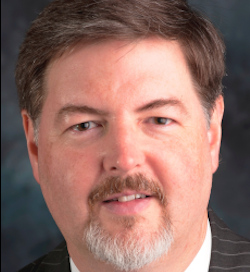
Chris Robinson is the Principal Technical Consultant for Nuclear Material Initiatives at the Y-12 National Security Complex, Oak Ridge, TN. He has thirty-six years of experience in the nuclear weapons complex with a broad range of roles and responsibilities regarding enriched uranium. As the PTC for nuclear material initiatives, his responsibilities include technical support and identification of program development opportunities for nuclear technology, nuclear materials, nuclear non-proliferation and national security programs. In addition, Mr. Robinson has program development responsibilities for a number of specialty reactor fuel initiatives and lithium pursuits. He is also an Adjunct Lecturer in the Nuclear Engineering Department at the University of Tennessee, Knoxville and a member of the South Carolina State University (SCSU) Industrial Advisory Committee for over 12 years. Mr. Robinson has held numerous leadership positions within the American Nuclear Society over several professional divisions. He received a BS in Physics (minor in Mathematics) from East Tennessee State University and an MS in Nuclear Engineering from the University of Tennessee.
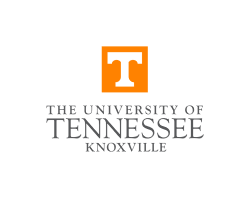
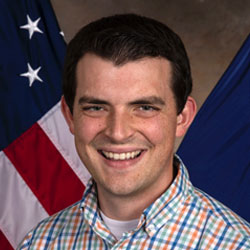
Taylor Duffin is a Ph.D. student at the University of Tennessee. His research focuses on molybdenum cermet fuel materials for nuclear thermal propulsion, specifically their high temperature behavior in a hydrogen environment. He received a Master’s in Nuclear Engineering from Penn State in 2017 and a Bachelor’s in Chemical Engineering from the University of Utah in 2015.
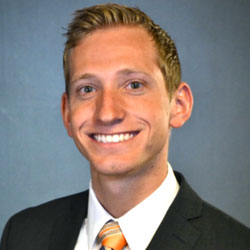
Neal Gaffin is a doctoral student at the University of Tennessee Knoxville studying Nuclear Engineering. He plans on obtaining a Master’s degree in Materials Science and Engineering. He received his undergraduate Bachelor’s degree in Chemical Engineering from Brigham Young University. He is currently researching the effects of neutron irradiation on ceramic fuel materials for use in nuclear thermal propulsion.
Tyler Steiner is a nuclear engineering Ph.D. candidate at the University of Tennessee, Knoxville. Tyler is using the In-Pile Experiment Set Apparatus (INSET) to serve two primary research functions. The first use of INSET is to provide a high temperature, subscale, steady state, in-pile experimental testbed for nuclear thermal propulsion related interests. Tyler is also using this high temperature environment for computational thermal radiation heat transfer solution method verification. He received his B.S. in Nuclear Engineering with a minor in Astronomy from Penn State in 2017.